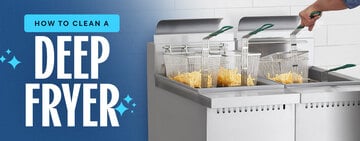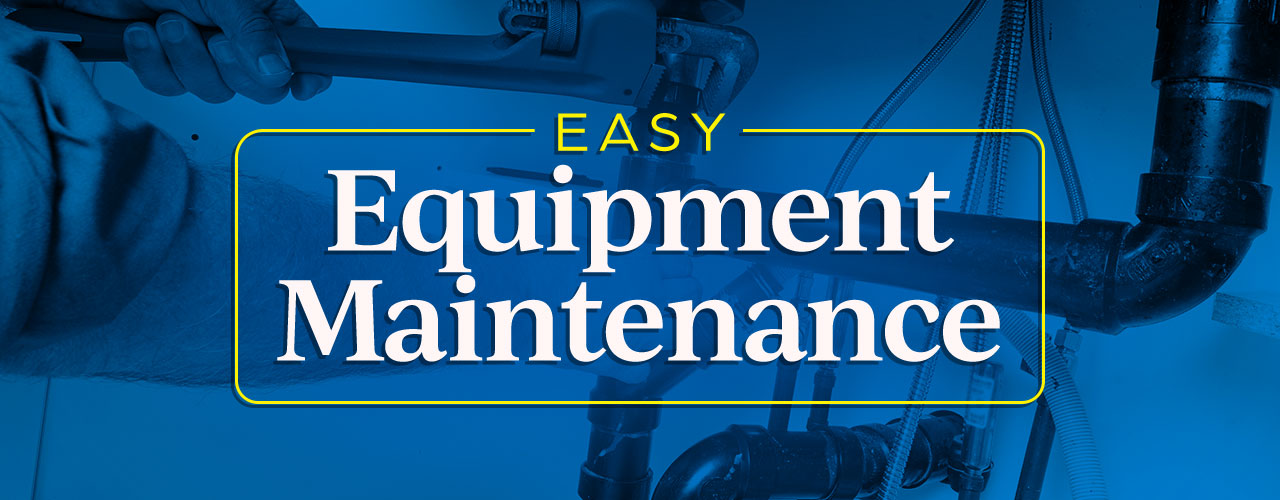
Many repairs to commercial restaurant equipment should be performed by trained professionals, but there are some simple maintenance tasks you can do on your own that will help to extend the life of your equipment. Avoiding service calls will save you money and time, allowing you to focus on your daily tasks. We'll outline some of the easiest maintenance tasks you can do on your own that have the biggest impact on your equipment.
What Is Maintenance?
Maintenance is the proactive process of keeping restaurant equipment in optimal working condition through regular inspections, cleaning, and minor repairs. It is a crucial aspect of equipment management that helps prevent breakdowns, extend the lifespan of equipment, and maintain food safety standards. Think of equipment maintenance the same way you view changing your car oil. The payoff is that your car engine runs longer and better. If you committ to some simple maintenance tasks, your equipment will also work better for a longer period of time.
Maintenance vs Troubleshooting
Maintenance differs from troubleshooting in that it focuses on preventing issues before they occur rather than fixing problems after they arise. Troubleshooting is the process of identifying and diagnosing equipment issues to determine the underlying cause. While troubleshooting and repairs involve fixing broken or malfunctioning equipment, maintenance involves preventive actions to minimize the likelihood of breakdowns.
Why Should You Prioritize Maintenance?
Prioritizing maintenance is essential for restaurant operators to ensure the smooth operation of their kitchen equipment and maintain a safe and efficient working environment. Regular maintenance can help prevent unexpected breakdowns that can disrupt service, lead to costly repairs, and impact the overall productivity of the kitchen staff. We recommend using a maintenance calendar to prioritize daily, weekly, and monthly tasks.
Refrigeration Maintenance
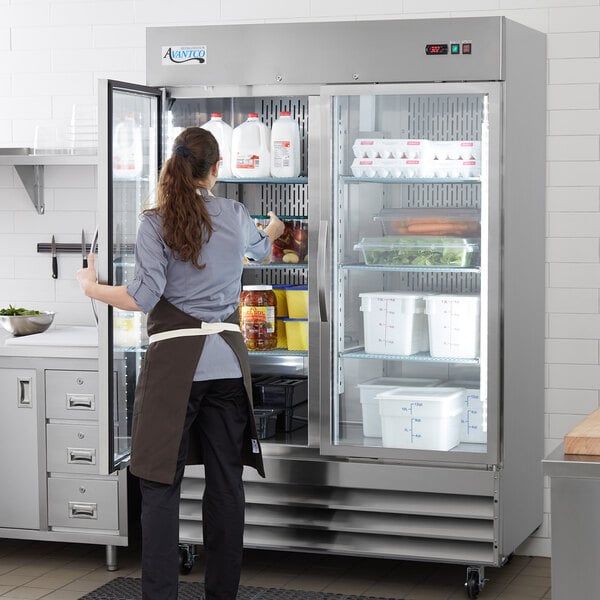
Refrigeration is the backbone of any commercial kitchen, ensuring that food stays fresh, safe, and at the right temperature. Without properly functioning refrigeration equipment, the consequences can be dire. Food spoilage can lead to significant financial losses, health code violations, and even foodborne illnesses for customers. Maintaining your refrigeration units regularly can help prevent unexpected issues and keep your kitchen running smoothly. Here are some simple preventative tasks you can do on your own:
- Cleaning the Condenser Coils: Believe it or not, many refrigeration issues can be prevented by simply keeping your condenser coils clean. Dust, dirt, and debris accumulate on this component, which lies directly behind the air intake. You can clean the coils on your own and improve the efficiency of your unit. This applies to many types of refrigeration, including salad preps, reach-ins, and merchandisers.
- Checking the Door Gaskets: Over time, the door gaskets on your refrigeration equipment can become worn or damaged, leading to air leaks and temperature fluctuations. Inspect the door gaskets regularly for signs of wear and tear, and replace them if necessary to ensure a proper seal.
- Defrosting the Evaporator Coils: If your equipment is not frost-free, it's important to defrost the evaporator coils regularly to prevent ice buildup. Follow the manufacturer's instructions for defrosting to ensure proper operation and energy efficiency.
- Inspecting the Fan Blades: The fan blades in your refrigeration equipment play a crucial role in circulating air and maintaining proper temperatures. Inspect the fan blades for any signs of damage or obstruction, and clean them as needed to ensure optimal performance.
Ice Machine Maintenance
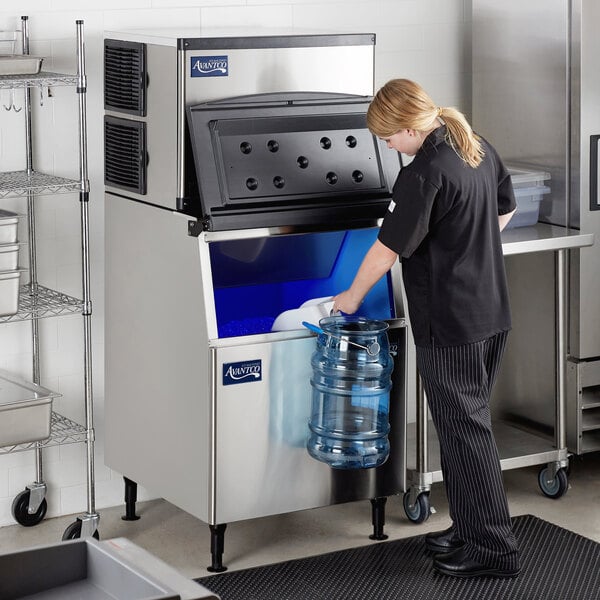
When an ice machine is out of order, it disrupts the whole flow of service. Servers can't fill drink orders, bartenders can't make cocktails, and you can't store or display anything on ice. A consistent supply of ice is very important, so it's a smart decision to perform regular maintenance. Show your hardworking ice machines some love by following these preventative tips:
- Cleaning the Condenser Coils: Just like refrigeration units, the condenser coils in your ice machine can accumulate dust over time, which can reduce the efficiency of the machine. Regularly cleaning the condenser coils with a soft brush or vacuum can help maintain optimal performance.
- Sanitizing the Ice Bin: It is important to regularly clean and sanitize the ice bin to prevent the growth of bacteria and mold. Use a commercial ice machine cleaner and follow the manufacturer's instructions for proper sanitization.
- Changing the Water Filters: Water filters play a crucial role in ensuring the quality of the ice produced by your machine. Regularly changing the water filters as recommended by the manufacturer can help prevent mineral buildup and maintain the taste and clarity of the ice.
- Inspecting for Leaks: Periodically check your ice machine for any leaks in the water lines or fittings. Addressing leaks promptly can prevent water damage and ensure the proper operation of the machine.
Deep Fryer Maintenance
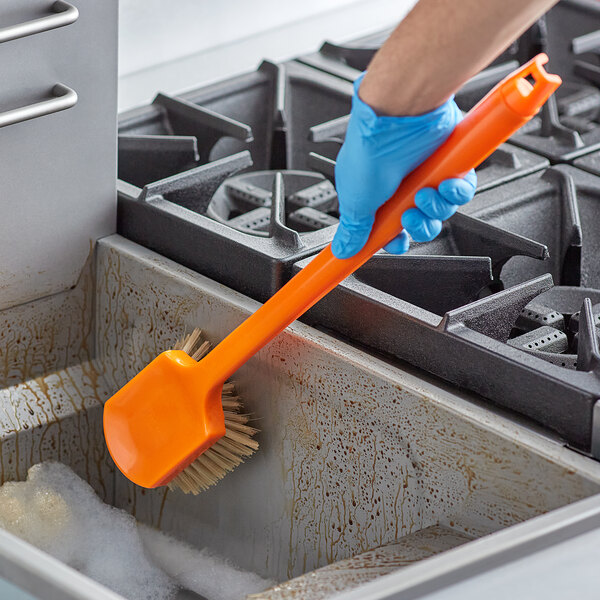
Neglecting maintenance on your commercial deep fryer can lead to costly repairs, downtime, and even safety hazards in your kitchen. Not only that, but it can also affect the quality and taste of your fried foods. Stay up to date with the deep fryer maintenance tasks:
- Clean the Fryer Daily: One of the most important maintenance tasks for your commercial deep fryer is daily cleaning. After each use, make sure to wipe down the exterior of the fryer with a damp cloth to remove any grease or food particles. Don't forget to clean the fryer basket, fry pot, and other removable parts with a mild detergent and warm water to prevent the buildup of grease and debris.
- Filter the Oil Regularly: Oil filtration is essential for maintaining the quality of your fried foods and prolonging the life of your deep fryer. Invest in a quality oil filter machine to remove crumbs and other impurities from the oil, which can affect the taste and texture of your fried products. Regularly filtering the oil will also help extend the oil's lifespan, saving you money on replacement oil costs.
- Inspect and Replace Oil: Keeping an eye on the quality of your frying oil is crucial for the performance of your deep fryer. Check the oil regularly for signs of discoloration, foaming, or a rancid smell, as these are indicators that the oil needs to be replaced. Overused oil can affect the taste of your fried foods and can also lead to mechanical issues with your fryer.
- Check and Replace Fryer Parts: Periodically inspect the fryer's heating elements, thermostats, and other components for signs of wear and tear. If you notice any damage or malfunctioning parts, replace them immediately to prevent further damage to the fryer. Regularly maintaining and replacing parts as needed will help ensure that your deep fryer operates efficiently and safely.
Dishwasher Maintenance
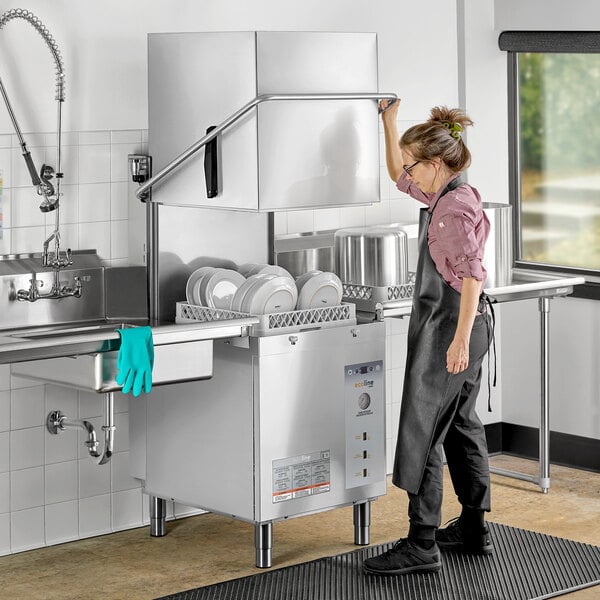
By performing some simple maintenance tasks yourself, you can extend the life of your dishwasher and avoid costly repairs or replacements. Here are some maintenance tasks you can do to keep your commercial dishwasher running smoothly:
- Cleaning the Filters: One of the most critical maintenance tasks for your commercial dishwasher is cleaning the filters regularly. Filters help trap food debris and prevent clogs in the machine. Remove and clean the filters according to the manufacturer's instructions to ensure proper water flow and cleaning performance.
- Checking the Spray Arms: Inspect the spray arms for any clogs or buildup that can hinder water flow and affect the cleaning efficiency of your dishwasher. Remove the spray arms and clean them thoroughly to ensure they are free from debris.
- Inspecting the Door Gasket: The door gasket creates a watertight seal when the dishwasher is in operation. Check the gasket for any signs of wear, tears, or mold buildup. Replace the gasket if necessary to prevent leaks and maintain the efficiency of your dishwasher.
- Cleaning the Interior: Regularly clean the interior of the dishwasher, including the walls, racks, and door, to prevent the buildup of grease, limescale, and food debris. Use a commercial dishwasher cleaner or a mixture of water and vinegar to clean the interior surfaces effectively.
Oven and Range Maintenance
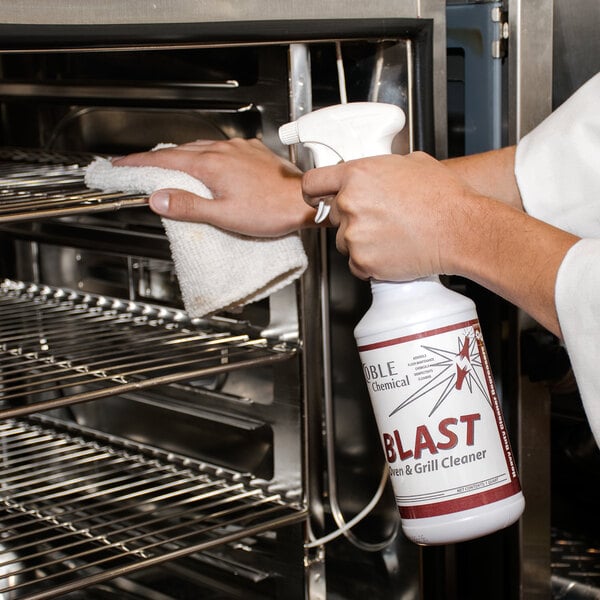
When it comes to restaurant equipment maintenance, staying on top of tasks for your ovens and ranges can make a huge difference in the longevity and efficiency of your cooking equipment. Here are some easy maintenance tasks you can do yourself and why they are important to keep up with:
- Regular Cleaning: Keeping your ovens and ranges clean is crucial for both food safety and equipment performance. Grease buildup can not only affect the taste of your dishes but also pose a fire hazard. Regularly wiping down surfaces, removing food debris, and cleaning out vents can help prevent issues down the line.
- Checking Gas Connections: Ensuring that gas connections are tight and free of leaks is essential for safety. A simple visual inspection and using a soap and water solution to check for bubbles can help identify any leaks that need to be addressed promptly.
- Cleaning Burners and Pilot Lights: Burners and pilot lights can accumulate dirt and debris over time, affecting their performance. Regularly cleaning and ensuring they are free of blockages can help prevent uneven heating and ignition issues.
- Replacing Air Filters: If your range hood has air filters, make sure to replace them according to the manufacturer's recommendations. Clogged filters can reduce airflow, leading to poor ventilation and potential smoke buildup in your kitchen.
- Regular Inspection: Start by visually inspecting your gas hoses and connectors for any signs of wear, cracks, or leaks. Check for any loose fittings or connections that may need tightening. It's important to inspect these components regularly to catch any potential issues early on.
- Cleaning: Keep your gas hoses and connectors clean to prevent the build-up of grease, dirt, or debris that can lead to clogs or blockages. Use a mild detergent and warm water to clean the exterior of the hoses and connectors, ensuring that they are free from any contaminants.
- Tighten Connections: Over time, the connections between gas hoses and equipment may become loose due to regular use. Check the connections periodically and tighten them if necessary to prevent gas leaks and ensure a secure fit.
- Replace Damaged Parts: If you notice any cracks, fraying, or other damage to your gas hoses, it's important to replace them immediately. Using damaged hoses or connectors can pose serious safety risks and compromise the performance of your equipment.
Gas Equipment Hoses and Connectors
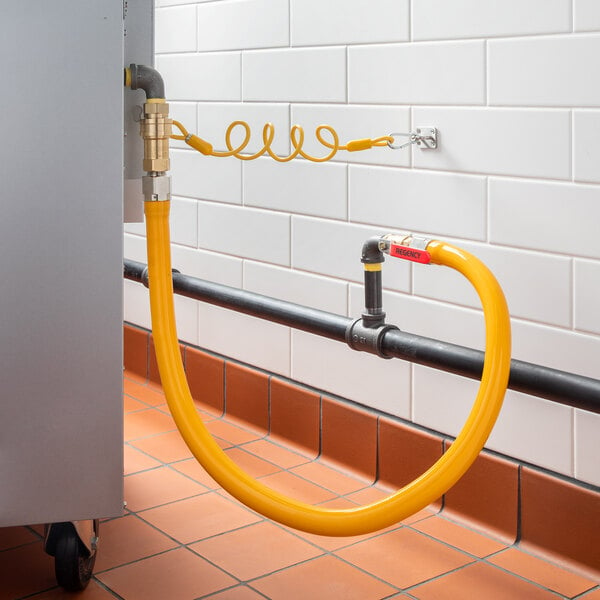
The hoses and connectors on your gas equipment take a lot of abuse. In a bustling kitchen environment, gas hoses are often moved, bent, or flexed during routine cleaning or equipment adjustments. This constant movement can strain the connections and compromise their integrity. Accidental bumps, knocks, or impacts from kitchen tools or equipment can also put stress on gas hoses.
Performing routine maintenance yourself can help you save money on expensive repair bills in the long run. By catching small issues early on, you can prevent them from turning into larger, more costly problems. Well-maintained equipment operates more efficiently, which can lead to energy savings and lower utility costs. Taking the time to perform simple maintenance tasks on your restaurant equipment can have a significant impact on the efficiency, longevity, and safety of your kitchen operations.



